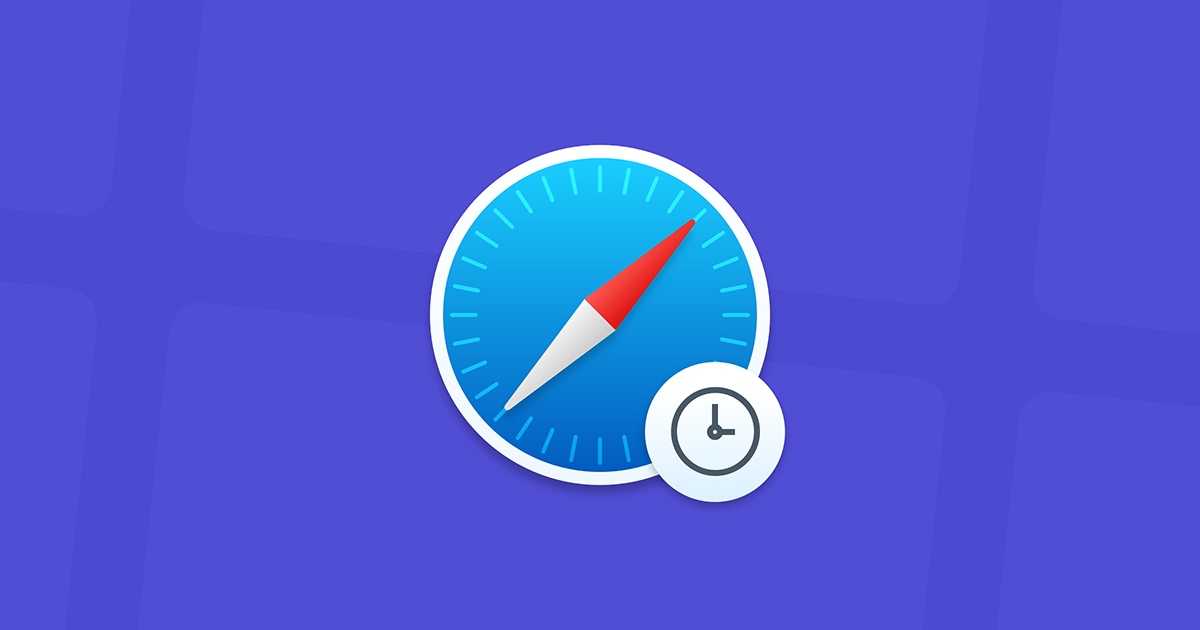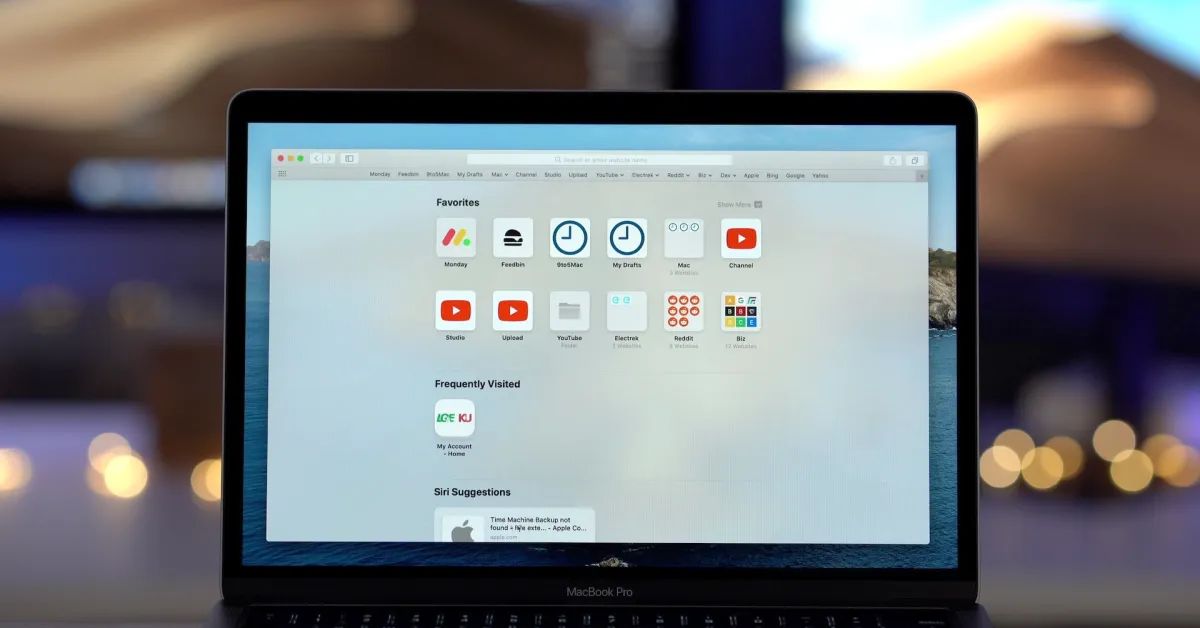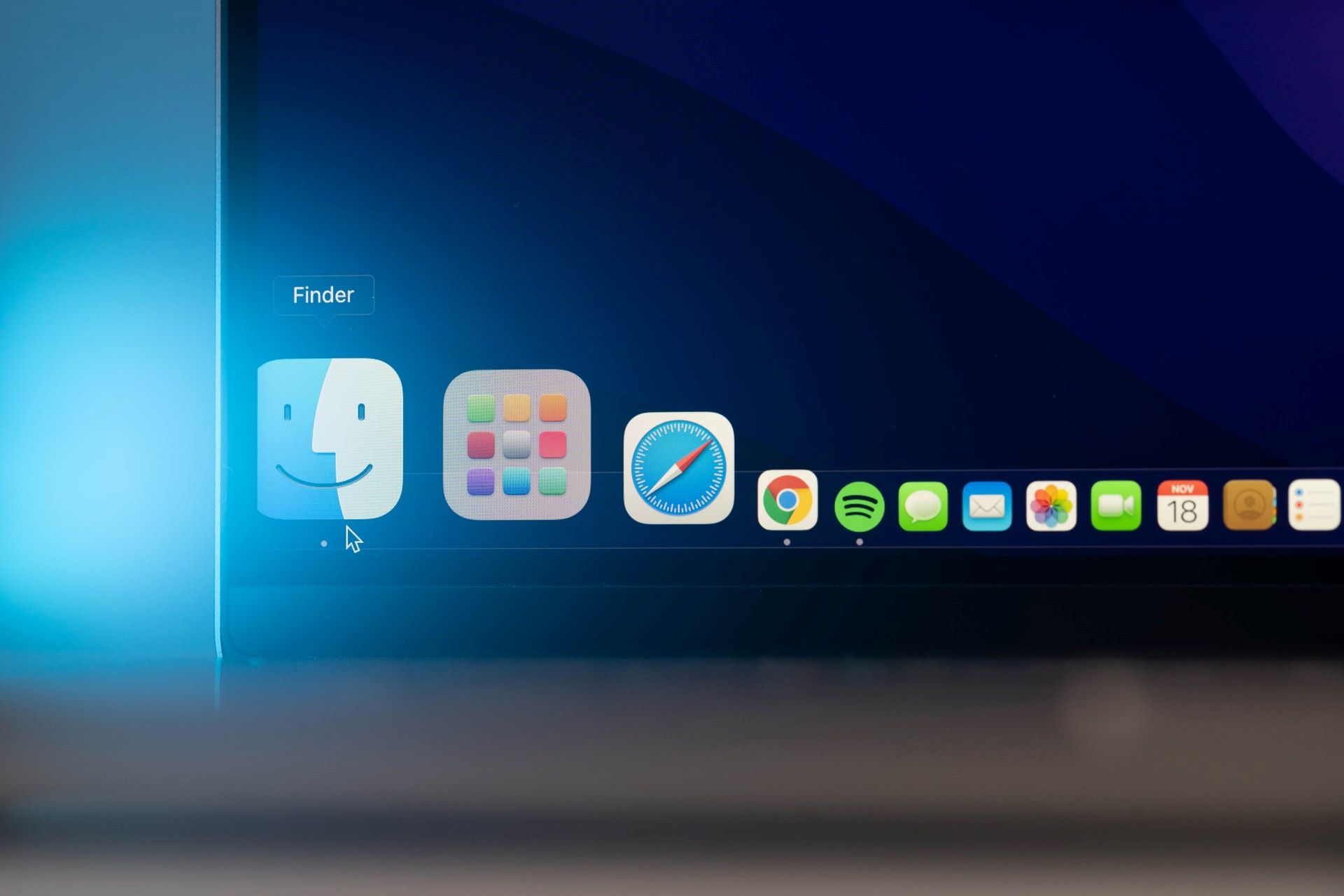Introduction
Safari, Apple's native web browser, is renowned for its sleek interface and seamless integration with the macOS and iOS ecosystems. However, despite its many advantages, users may encounter instances where Safari seems to be sluggish or unresponsive. This can be a frustrating experience, especially when trying to browse the web efficiently. In this article, we will explore the various factors that can contribute to Safari's sluggish performance and provide insights into how these issues can be addressed.
From outdated software and excessive open tabs to cache and cookie buildup, as well as the impact of extensions, plugins, hardware limitations, and network issues, there are several potential culprits behind Safari's slowdowns. By understanding these factors and implementing the appropriate solutions, users can optimize their browsing experience and restore Safari to its optimal performance.
Let's delve into the intricacies of Safari's performance and uncover the underlying reasons for its occasional sluggishness. By the end of this article, you will have a comprehensive understanding of the potential factors impacting Safari's speed and be equipped with actionable strategies to address these issues effectively.
Outdated Software
Outdated software can significantly impact the performance of Safari. As Apple regularly releases updates to enhance the browser's functionality, security, and overall speed, running an outdated version of Safari can lead to various performance issues.
When Safari is not updated to the latest version, it may lack the necessary optimizations and bug fixes that are crucial for smooth and efficient browsing. This can result in slower loading times, unresponsive tabs, and overall sluggishness when navigating websites.
Moreover, outdated software may also leave the browser vulnerable to security threats and compatibility issues with modern web technologies. As websites evolve and adopt new standards, an outdated browser may struggle to render content correctly, further exacerbating its performance woes.
To address the impact of outdated software on Safari's speed, users should prioritize keeping their browser up to date. This involves regularly checking for updates through the App Store on macOS or the Settings app on iOS devices. By ensuring that Safari is running the latest version, users can take advantage of performance improvements, security patches, and enhanced compatibility with contemporary web content.
In addition to updating Safari, it's also essential to keep the underlying operating system, such as macOS or iOS, up to date. Apple frequently releases system updates that include improvements to Safari's performance and stability. Therefore, by maintaining an updated operating system, users can further mitigate the impact of outdated software on Safari's speed.
By staying vigilant about software updates and promptly installing the latest versions of Safari and the underlying operating system, users can proactively address the potential performance limitations associated with outdated software. This simple yet crucial maintenance practice can significantly contribute to optimizing Safari's speed and ensuring a seamless browsing experience.
In the next sections, we will explore additional factors that can influence Safari's performance, providing valuable insights and actionable strategies to empower users in addressing these issues effectively.
Too Many Tabs Open
Having an excessive number of tabs open in Safari can exert a substantial toll on the browser's performance. While the allure of multitasking and easy access to multiple web pages is undeniable, each open tab consumes system resources, potentially leading to a slowdown in browsing speed and responsiveness.
When numerous tabs are open simultaneously, Safari must allocate memory and processing power to each tab, even when they are not actively in use. This can strain the system resources, particularly on devices with limited RAM, causing Safari to become sluggish and unresponsive.
Furthermore, the accumulation of open tabs can impact the browser's overall efficiency in managing web content. As the number of tabs increases, Safari may struggle to maintain optimal performance, resulting in slower tab switching, delayed page loading, and increased likelihood of tab crashes.
To mitigate the impact of having too many tabs open, users can adopt several strategies to streamline their browsing experience. One approach is to prioritize tab management by closing tabs that are no longer needed. This can be achieved by identifying and closing tabs that have been open for an extended period or are no longer relevant to the current browsing session.
Additionally, leveraging Safari's built-in tab management features, such as tab grouping or bookmarking, can help users organize and declutter their browsing environment. By grouping related tabs together or bookmarking pages for future reference, users can maintain a more manageable and efficient tab layout, reducing the strain on system resources and enhancing overall browsing speed.
Moreover, users can consider utilizing browser extensions or plugins designed to optimize tab management. These tools can offer functionalities such as suspending inactive tabs, reducing memory consumption, and providing quick access to frequently visited websites, thereby promoting a more streamlined and responsive browsing experience.
By implementing these proactive tab management strategies, users can alleviate the performance impact of having too many tabs open in Safari. This, in turn, can contribute to a smoother and more efficient browsing experience, enabling users to navigate the web with enhanced speed and responsiveness.
As we continue to explore the various factors influencing Safari's performance, it becomes evident that proactive management and optimization play a pivotal role in maintaining an optimal browsing experience. Let's delve further into the intricacies of Safari's performance and uncover actionable strategies to address these issues effectively.
Cache and Cookies
Cache and cookies, while serving important functions in enhancing browsing efficiency and personalizing the web experience, can also contribute to Safari's slowdown when left unmanaged.
Cache
Safari, like other web browsers, utilizes a cache to store temporary copies of web pages, images, and other resources. This mechanism aims to expedite the loading of frequently visited websites by retrieving content from the local cache instead of re-downloading it from the internet. While this can significantly enhance browsing speed, an excessively large or outdated cache can have the opposite effect.
When the cache becomes bloated with a surplus of outdated or redundant data, it can impede Safari's performance. This can manifest as slower page loading times, unresponsive navigation, and potential conflicts with website content. Moreover, an overstuffed cache can consume valuable storage space on the device, further exacerbating performance issues.
To address the impact of cache buildup on Safari's speed, users can take proactive measures to manage the browser's cache. Safari provides an option to clear the cache, allowing users to purge accumulated temporary data and reclaim valuable storage space. By periodically clearing the cache, users can ensure that Safari's performance is not compromised by an excessively large or outdated cache, thereby promoting faster and more responsive browsing.
Cookies
Cookies, small pieces of data stored by websites on the user's device, play a pivotal role in personalizing the web experience, maintaining user preferences, and enabling seamless authentication on various websites. However, an abundance of cookies, particularly from a wide array of websites, can impact Safari's performance.
When Safari accumulates a substantial number of cookies, it may experience delays in processing and managing these data files, potentially leading to slower browsing speeds and responsiveness. Additionally, an excessive number of cookies can contribute to privacy concerns and may hinder the browser's ability to deliver a streamlined and efficient browsing experience.
To mitigate the impact of cookies on Safari's performance, users can leverage the browser's built-in tools to manage and clear cookies selectively. Safari offers the option to delete specific cookies or clear all cookies, empowering users to maintain a lean and efficient collection of cookies while preserving essential site-specific data.
By proactively managing the cache and cookies in Safari, users can optimize the browser's performance, enhance browsing speed, and ensure a more responsive and efficient web experience. These simple yet effective maintenance practices can significantly contribute to mitigating the impact of cache and cookies on Safari's speed, empowering users to enjoy a smoother and more streamlined browsing experience.
As we delve deeper into the intricacies of Safari's performance, it becomes evident that proactive management and optimization play a pivotal role in maintaining an optimal browsing experience. Let's continue exploring the various factors influencing Safari's performance and uncover actionable strategies to address these issues effectively.
Extensions and Plugins
Extensions and plugins can significantly impact Safari's performance, as they introduce additional functionalities and features to the browser. While these add-ons can enhance the browsing experience, they can also contribute to slowdowns and unresponsiveness if not managed effectively.
Extensions, also known as browser extensions or add-ons, are small software programs that modify and enhance the functionality of the web browser. They can offer a wide range of capabilities, such as ad blocking, password management, productivity tools, and more. Similarly, plugins, often used interchangeably with extensions, are software components that add specific features to the browser, such as multimedia playback, document viewing, and interactive content.
When an excessive number of extensions and plugins are installed and active in Safari, they can consume system resources, impact memory usage, and introduce potential conflicts that hinder the browser's performance. This can manifest as slower page loading times, increased CPU utilization, and overall sluggishness when navigating websites.
To address the impact of extensions and plugins on Safari's speed, users should prioritize efficient management of these add-ons. One approach is to review and assess the necessity of each installed extension and plugin. By identifying and removing redundant or seldom-used add-ons, users can streamline Safari's functionality and reduce the strain on system resources, thereby promoting improved browsing speed and responsiveness.
Furthermore, users should stay vigilant about the source and reliability of extensions and plugins. It is essential to obtain these add-ons from reputable sources, such as the official Safari Extensions Gallery or trusted developers, to minimize the risk of encountering poorly optimized or potentially malicious add-ons that could compromise Safari's performance.
Regularly updating extensions and plugins is also crucial in maintaining Safari's speed and stability. Developers often release updates to address performance issues, security vulnerabilities, and compatibility enhancements. By ensuring that extensions and plugins are up to date, users can leverage the latest optimizations and improvements, contributing to a more efficient and responsive browsing experience.
By implementing these proactive measures to manage extensions and plugins effectively, users can mitigate the impact of these add-ons on Safari's performance. This, in turn, can contribute to a smoother and more efficient browsing experience, enabling users to navigate the web with enhanced speed and responsiveness.
As we continue to explore the various factors influencing Safari's performance, it becomes evident that proactive management and optimization play a pivotal role in maintaining an optimal browsing experience. Let's delve further into the intricacies of Safari's performance and uncover actionable strategies to address these issues effectively.
Hardware Limitations
Safari's performance can be significantly impacted by the hardware capabilities of the device on which it is running. While Safari is designed to deliver a seamless and efficient browsing experience, the hardware limitations of the underlying device can pose challenges to its speed and responsiveness.
One of the primary hardware limitations that can affect Safari's performance is the amount of available random access memory (RAM). RAM plays a crucial role in facilitating the smooth operation of applications, including web browsers. When the available RAM is insufficient to accommodate the demands of Safari and other concurrently running processes, it can lead to performance bottlenecks and slowdowns.
Additionally, the processing power of the device's central processing unit (CPU) can influence Safari's speed and responsiveness. Older or less powerful CPUs may struggle to handle the computational demands of modern web content, resulting in slower page rendering, delayed script execution, and overall sluggishness when navigating websites.
Furthermore, the storage technology employed in the device, such as traditional hard disk drives (HDDs) versus solid-state drives (SSDs), can impact Safari's performance. SSDs, known for their faster read and write speeds compared to HDDs, can contribute to quicker data retrieval and caching, thereby enhancing Safari's overall speed and responsiveness.
To address the impact of hardware limitations on Safari's performance, users should consider the hardware specifications of their devices and how they align with the demands of modern web browsing. Upgrading the device's RAM, if feasible, can provide a notable boost to Safari's performance by allowing it to handle a larger number of open tabs and resource-intensive web content more efficiently.
Similarly, upgrading to a device with a more powerful CPU and faster storage technology, such as an SSD, can significantly enhance Safari's speed and responsiveness. While hardware upgrades may not always be feasible for all users, particularly those with older devices, understanding the potential impact of hardware limitations on Safari's performance can empower users to make informed decisions when considering device upgrades or replacements.
By acknowledging and addressing the hardware limitations that can impact Safari's performance, users can take proactive steps to optimize their browsing experience and ensure that Safari operates at its full potential, delivering a smoother and more efficient web browsing experience.
As we continue to explore the various factors influencing Safari's performance, it becomes evident that proactive management and optimization play a pivotal role in maintaining an optimal browsing experience. Let's delve further into the intricacies of Safari's performance and uncover actionable strategies to address these issues effectively.
Network Issues
Network issues can significantly impact Safari's performance, as the browser's ability to retrieve and render web content is inherently reliant on a stable and efficient network connection. When network issues arise, whether due to connectivity disruptions, bandwidth limitations, or latency challenges, Safari may experience slowdowns, delayed page loading, and overall diminished responsiveness.
One of the primary network-related factors that can affect Safari's performance is the stability and speed of the internet connection. In scenarios where the network connection is unstable or experiencing intermittent disruptions, Safari may struggle to fetch web content consistently, leading to incomplete page loads, unresponsive tabs, and potential errors when accessing websites. Additionally, bandwidth limitations, particularly in environments with constrained internet speeds, can contribute to prolonged loading times and reduced overall browsing speed.
Latency, or the delay between sending and receiving data packets over the network, is another critical aspect that can impact Safari's performance. High latency can result in sluggish responsiveness when interacting with web pages, as actions such as clicking on links, submitting forms, or loading dynamic content may experience noticeable delays. This can detract from the fluidity and seamlessness of the browsing experience, particularly when engaging with interactive or multimedia-rich web content.
To address the impact of network issues on Safari's performance, users should prioritize optimizing their network environment. This can involve troubleshooting and resolving connectivity issues, ensuring that the device is adequately positioned within the range of a stable Wi-Fi signal, and addressing potential sources of interference that may disrupt the network connection. Additionally, users can explore options to upgrade their internet service to a higher bandwidth or seek alternative network connectivity solutions to mitigate the impact of bandwidth limitations on Safari's speed and responsiveness.
Furthermore, leveraging technologies such as content caching and offline browsing capabilities can help mitigate the impact of network issues on Safari's performance. By caching frequently accessed web content locally and enabling offline browsing for essential resources, users can reduce their reliance on real-time network connectivity, promoting faster access to previously visited web pages and resources.
By addressing network issues and optimizing the network environment, users can mitigate the impact of connectivity challenges on Safari's performance, ensuring a smoother and more responsive browsing experience. These proactive measures can empower users to navigate the web with enhanced speed and efficiency, even in the face of network-related obstacles.
As we continue to explore the various factors influencing Safari's performance, it becomes evident that proactive management and optimization play a pivotal role in maintaining an optimal browsing experience. Let's delve further into the intricacies of Safari's performance and uncover actionable strategies to address these issues effectively.
Conclusion
In conclusion, Safari's occasional sluggishness can be attributed to a variety of factors, ranging from outdated software and excessive open tabs to cache and cookie buildup, the impact of extensions and plugins, hardware limitations, and network issues. Understanding these potential culprits is essential for optimizing Safari's performance and ensuring a seamless browsing experience.
Addressing the impact of outdated software is crucial, as running an outdated version of Safari can lead to slower loading times and potential security vulnerabilities. By staying vigilant about software updates and promptly installing the latest versions of Safari and the underlying operating system, users can proactively mitigate the impact of outdated software on Safari's speed.
Managing the number of open tabs in Safari is equally important, as excessive tabs can strain system resources and hinder browsing speed. Prioritizing tab management, leveraging built-in tab grouping features, and considering the use of tab management extensions can streamline the browsing experience and alleviate the performance impact of too many open tabs.
Proactively managing the cache and cookies in Safari is essential for optimizing browsing speed and responsiveness. Regularly clearing the cache and selectively managing cookies can prevent the accumulation of outdated or redundant data, ensuring that Safari operates efficiently and delivers a seamless web experience.
Efficient management of extensions and plugins is also crucial, as these add-ons can impact Safari's performance. Reviewing the necessity of installed add-ons, ensuring their reliability, and keeping them up to date are essential strategies for mitigating the performance impact of extensions and plugins on Safari.
Acknowledging and addressing hardware limitations, such as RAM, CPU capabilities, and storage technology, can empower users to make informed decisions when considering device upgrades or replacements, ultimately contributing to a smoother and more efficient browsing experience.
Finally, optimizing the network environment and addressing connectivity challenges are paramount for mitigating the impact of network issues on Safari's performance. Troubleshooting connectivity issues, optimizing network stability, and leveraging technologies such as content caching can enhance browsing speed and responsiveness, even in the face of network-related obstacles.
By understanding these factors and implementing the actionable strategies outlined in this article, users can proactively address the potential performance limitations associated with Safari's occasional sluggishness. This proactive approach can significantly contribute to optimizing Safari's speed and ensuring a seamless and efficient browsing experience, empowering users to navigate the web with enhanced speed and responsiveness.

























